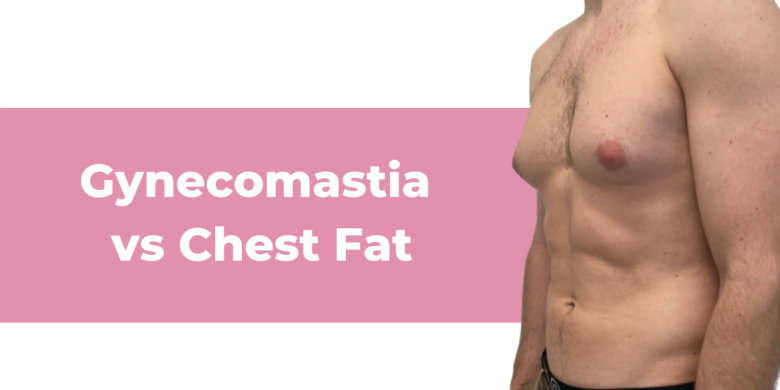
Although weight loss programs may promise quick weight loss, many people don't realize that long-term changes in eating and physical activity are necessary for success. It is important that you find a program to help you lose weight quickly and keep it off throughout your life. There are many great options available.
Noom
Noom is a weight loss program that gives you all the tools you need without having to starve yourself. The program will help you set a daily caloric goal, connect you to a community of Noomers and log all your food, exercise, and other activities. The program encourages you eat nutritious foods, but low in calories. It also offers a color-coded food system which encourages you eat mostly yellow and green foods. It also encourages you to eat red foods in moderation, and to balance them with other foods.

Jenny Craig
Jenny Craig's program is a great way of losing weight. Pre-packaged meals are available as well as nutritional counseling. Members can also access a 24/7 support line as well as one-on-1 coaching to assist them in their journey. The plan is designed to encourage healthy eating habits and proper portion sizes. It also includes exercises and mental wellness.
Nutrisystem
Nutrisystem can help you lose weight by providing a low-calorie diet. It offers pre-portioned meals and convenient packaging. The program encourages exercise. A week should contain at least 150 minutes moderate-intensity activity. You can make it easier to manage your time if life gets busy. You should also aim to include at least two strength training sessions per week. Exercising has numerous benefits. It can improve your mental and physical well-being.
Medifast
Medifast was initially designed for people who have strict dietary restrictions. Medifast, Inc. recently settled a case revealing misleading advertising practices. Medifast, Inc. has settled for up to 3.7 Million Dollars. The company also made major changes in the diet. Instead of six small meals per day, participants now have to eat only one main meal at dinner.

A new direction
New Direction for Weight loss includes a diet and meal replacement shakes. These shakes provide more than 100 per cent of the daily recommended amount of vitamins and mineral. These products contain all-natural ingredients and the right amount of essential fatty acids, protein, and carbohydrates. They are also calorie-controlled, and do not contain any artificial ingredients. It's ideal for those who have not been successful with other weight-loss programs and want to lose at most thirty pounds. New Direction is free of gimmicks as well as herbal remedies. They also don't require advance payments or medical screenings.
FAQ
Are there side effects to intermittent fasting
Intermittent fasting does not have any known side effects. However, if you don't plan properly, you might experience some minor issues.
If you skip breakfast, for example, you may feel constantly irritable. Other symptoms include headaches, dizziness and fatigue as well as muscle cramps.
These symptoms are usually gone within a few days.
How long should I do Intermittent fasting to lose weight?
It is not as easy as you think. A number of factors need to be considered when determining how many days of fasting are needed for optimal fat loss. These are:
-
Your age. Your age. Intermittent fasting is more difficult for younger people under 40. You have less time to recover each day from fasting. Alternately, if your age is over 60, intermittent fasting might prove too challenging because you may not have enough energy to last for extended periods of time.
-
Your current body composition. Your current body composition. If you have a lot more muscle mass than you need, then you will likely be more successful with longer fasting periods. You may find shorter fasting more beneficial if your muscle mass is low.
-
How physically active. To ensure adequate rest between workouts, you might need to extend your fasting period if you exercise frequently.
-
Your medical history. Patients with certain medical conditions, such as heart disease, diabetes, or cancer, may need additional fasting monitoring.
-
How do stress and anxiety affect you? Stressful situations often make us eat less. This problem can be avoided by increasing the length of your fasting periods.
-
The type of diet you follow. Certain diets, like ketogenic diets, may require even longer fasting periods.
-
Your quality of sleep. Insufficient sleep has been associated with decreased metabolism and increased appetite. You may need to experiment before you discover what works for you.
-
The amount you eat of protein. Consuming more protein helps to stabilize blood sugar levels. This could lead to lower insulin levels. This would allow one to fast for longer periods.
-
People who want to gain weight or lose it will need to fast for longer periods of time than those trying to lose.
-
What proportion of calories do your fasting hours allow you to consume? Fasting fewer calories per day may result in greater fat loss than fasting for more calories per day.
-
Your overall fitness level. A person who is very fit will burn more calories every day because they are faster.
-
Your gender. Men have greater appetites than women and may need to fast longer. Women generally have smaller appetites, so they may only need to fast for about 20-30 minutes every morning.
-
Your lifestyle. Are you someone who does a lot of exercise? Do you work out several times a week? Does your job involve sitting at a desk all day long? All these factors can have an impact on how much time you should speed.
-
How much do you spend per month on food? Eating healthy foods doesn't necessarily mean spending much money on groceries. Whole grains can be replaced by white bread, fruits can replace candy bars, and lean cuts of meat can be used to save money.
-
It's important to manage your hunger. Fasting may not be necessary if you don't want skip meals.
How often do people fast?
The majority of people who follow the ketogenic diet fast only once a week. However, there are some who fast twice per week. And others fast three times per week.
There are many lengths to fasting. Some people fast for 24 hours, whereas others fast for 48 hours.
Some people will even travel more than 72 hours. These extreme cases are rare.
What Amount of Weight Can You Lose In A Week?
The amount of weight that you can lose will depend on how high your body fat percentage is. To begin, you need to determine how much weight that you would like to lose. Next, find your BMI (Body Mass Index). Your BMI tells us how much weight you should lose in order to achieve this goal. If your BMI is 25 or greater, you're overweight. If your BMI is 30 or higher, you're obese.
For example, let's say you have a BMI of 28.7 and are 200 pounds. To reach a healthy weight, you would need to lose 70 pounds. To see if you're overweight, visit www.healthyminds.com/bmi/.
This formula can be used to calculate how many pounds you will lose each week once you have determined your BMI.
(Your Goal Weight - Current Weight)/BMI * 7 Number Of Pounds Lost Per Week
For 50 pounds to be lost in one month, it would take 2 weeks of exercise. 56 days is equivalent to 7 pounds per day. That works out to 8.3 pounds lost per week.
You could also try this calculator from www.weightlosscalculator.net. This calculator gives you an estimate of how many calories are needed to lose 1 pound per day.
How do I create an exercise routine?
Create a routine. You must know what you will do each and every day, as well as how long it will take. This will help you plan ahead and prevent procrastination.
The second thing is to ensure that you have plenty of variety in your workout. It is important not to get bored while exercising. This will cause you to lose interest and make it difficult for you to stick with it.
It is important to track your progress. It is crucial to track how much weight has been lost or gained.
It's easy for people to lose motivation when they start by losing weight. You may find it difficult to stay motivated if your weight increases.
Try to strike a balance in your weight loss and weight gain. If you are unhappy about where you are, it will make you less likely to exercise.
Statistics
- A 12-week study in 20 women with obesity found that walking for 50–70 minutes 3 times per week reduced body fat and waist circumference by an average of 1.5% and 1.1 inches (2.8 cm), respectively (healthline.com)
- According to a study sponsored by the American Council on Exercise, a person weighing around 140 pounds (64 kg) would burn 108 calories at a 30-minute beginner's Pilates class or 168 calories at an advanced class of the same duration (26). (healthline.com)
- Another study found that 24 weeks of weight training led to a 9% increase in metabolic rate among men, which equated to burning approximately 140 more calories per day. (healthline.com)
- One 6-month study showed that simply doing 11 minutes of strength-based exercises 3 times per week resulted in a 7.4% increase in metabolic rate, on average. (healthline.com)
External Links
How To
How to lose weight quickly
There are many options to lose weight quickly. They are often ineffective and non-sustainable, however. The best way to lose weight fast is through dieting and exercise. Consume fewer calories per day than you burn. This means eating less calories than you burn during your normal activities. To lose weight quickly, you need to reduce your calorie intake.
You should avoid foods that contain large amounts of fat and sugar since they increase your appetite. Drink plenty of water each day. It helps keep you hydrated and keeps your metabolism running at its peak. You'll get results quicker than you ever imagined if you combine all three of these things.